‘You must read, you must persevere, you must sit up nights, you must inquire, and exert the utmost power of your mind. If one way does not lead to the desired meaning, take another; if obstacles arise, then still another; until, if your strength holds out, you will find that clear which at first looked dark’ (Boccaccio, 208).
Giovanni Boccaccio (1313-1375) was an Italian humanist poet and literary critic during the Renaissance period, known not only for his learning and scholarship, but also as a great defender of poetry as an art form and a vocation. Against those who decried poetry as a trivial, obscure and pointless pastime, Boccaccio offered instead that poetry is not only an honourable pursuit, but is altogether necessary for our understanding of life and of the human condition. In Book XIV of his work, Genealogy of the Gentile Gods, he notes that his opponents come from various walks of life, be they amateur artists, lawyers, or clerics (though it is clear his contempt is strongest for the clerics, considering they ‘mask themselves with sanctity’) (p. 192). These men are all ‘sworn conspirators against the high arts’ who, though they ‘profess piety, sanctity, and justice,’ (193) are nothing but ‘noisy sophists’ (195). Boccaccio summarises their attacks thusly:
They say that poetry is absolutely of no account, and the making of poetry a useless and absurd craft; that poets are tale-mongers, or, in lower terms, liars; that they live in the country among the woods and mountains because they lack manners and polish. They say [...] that their poems are false, obscure, lewd, and replete with absurd and silly tales of pagan gods. [...] Again and again they cry out that poets are seducers of the mind, prompters of crime, and, to make their foul charge fouler, they say [...] that it is a heinous crime to read or possess the books or poets. (194).
In response to these attacks, what Boccaccio calls the ‘foolish and ill-considered clamour of mad men’ (194), he calls to mind what he believes poetry actually is, a divine gift sent from heaven itself:
This poetry, which ignorant triflers cast aside, is a sort of fervid and exquisite invention, with fervid expression, in speech or writing, of that which the mind has invented. It proceeds from the bosom of God, and few, I find, are the souls in whom this gift is born; indeed so wonderful a gift it is that true poets have always been the rarest of men. (196).Not only is poetry a noble pursuit in and of itself, but its effects are numerous. Well-wrought verse is able to ‘arm kings, marshal them for war […] adorn young maidens with flowery garlands, portray human character in its various phases,’ and, speaking of its moral and didactic use, it can ‘awake the idle, stimulate the dull, restrain the rash [and] subdue the criminal’ (197). In addition to defending the effects of poetry, Boccaccio feels it necessary to marshal support for the artist in particular, describing the character and circumstance of the poet with a special reverence:
[...] few, I find, are the souls in whom this gift is born; indeed so wonderful a gift it is that true poets have always been the rarest of men. (198). [P]oetry has ever streamed forth from the bosom of God' (197). Here, the ancient role of the poet as prophet shines through. Having long studied the works of classical antiquity, Boccaccio felt comfortable using such hallowed terms to describe the poetic act and process. According to C.M. Bowra’s work, The Greek Experience (1957), ‘In Ancient Rome the word for poet, vates, was the same as for prophet’ (Bowra, 144).
Indeed, the poet was ‘regarded as the instrument of an external power which possesses him and speaks through him with his own voice’ (144). Therefore, it followed that without the gods, the poet was nothing: ‘Art hardly belongs to him; for he depends on inspiraition’ (144). Boccaccio agrees, although naturally he places the credit for poetic inspiration—even in pagan poetry—with the God of the Christians. In support of this hallowed origin for poetic insight, Boccaccio then cites the Roman philosopher, Cicero, from a senate oration delivered on behalf of the poet, Aulus Licinius Archias, wherein he said that ‘poetry depends solely upon an inborn faculty […] and is infused with a strange inspiration’ (Cicero, Pro Archia Poeta, quoted by Boccaccio, 198).
Boccaccio then responds to what might be called an argument from obscurity, that is, isn’t all this poetry stuff just too damn hard to read and understand? On this point, I am slightly sympathetic to the his opponents, as I am sure many of us have probably had the same thought from time to time. It appears that readers in the fourteenth century had no less trouble understanding Vergil than we at times have with Shakespeare. Nevertheless, Boccaccio has no time for such low-grade objections. ‘Perverse notion!’ he cries, and calls to mind the difficulties in certain universally beloved works, such as those of Socrates, or of the Holy Scriptures:
Who but a deceiver himself would have sunk low enough not merely to hate what he could not understand, but incriminate it, if he could! [...] for the works of Plato and Aristotle, to go no further, abound in difficulties so tangled and involved [...] though searched and pondered by many a man of keen insight, they have yielded no clear nor consistent meaning. [And then] [t]here is the utterance of Holy Writ [...] is it not full to overflowing with obscurities and ambiguities? (206).
As many of his detractors were men of the Church, this is a sophisticated line of argument. Oh, poetry is difficult to understand? Well, so is the Bible, and yet you would find no fault with the Scriptures for being so? Quite a good jab there, Boccaccio. He goes on to quote two excerpts from the revered Church Father, St. Augustine, who wrote of the many benefits of interpretation and learning that an obscure text can provide the attendant reader:
The obscurity of the divine word has certainly this advantage, that it classes many opinions about the truth to be started and discussed, each reader seeing some fresh meaning in it. (Augustine, City of God, Book XI, quoted by Boccaccio, 207). For perhaps the words are rather obscurely expressed [in the Scriptures] for this reason, that they may call forth many understandings, and that men may go away the richer, because they have found that closed which might be opened in many ways, than if they could open and discover it by one interpretation. (Augustine, commentary on Psalm 126, quoted by Boccaccio, 207).
That each reader may see some fresh meaning in it. Surely this is the definition of a classic text, that each time one returns to it one is left with different impressions, and with each new generation of readers there are fresh debates and renewed argument. So too with high and great and difficult poetry, says Boccaccio. Indeed, quoting his contemporary, Francis Petrarch, he writes, ‘What we acquire with difficulty and keep with care is always the dearer to us’ (Petrarch, Invectives, Book III, quoted by Boccaccio, 208). To this the author joins his own barb, adding that ‘if their [his opponents] minds are dull let them not blame the poet but their own sloth’ (208).
To those of us who see the value in difficult and obscure poetry, but nevertheless find it a laborious business at times, Boccaccio offers some advice:
You must read, you must persevere, you must sit up nights, you must inquire, and exert the utmost power of your mind. If one way does not lead to the desired meaning, take another; if obstacles arise, then still another; until, if your strength holds out, you will find that clear which at first looked dark (208).I will close this article with a quote by Cicero, which I find provides a spirit of much-needed encouragement to those of us today in the modern world, beset as we are by so many diversions:
These studies may engage the strength of our manhood and divert us in old age; they are the adornment of prosperity, the refuge and solace of adversity; delightful at home, convenient in all places; they are ever with us through the night season; in our travels; in our rural retreats. And if we may not pursue them ourselves nor enjoy them in person, yet we should admire them as seen in others.
(Cicero, Pro Archia Poeta, quoted by Boccaccio, 211).Works Cited:
Bowra, C.M. The Greek Experience. London: Cardinal, 1973.
O.B. Hardison, Jr., et al. Medieval Literary Criticism: Translations and Interpretations. New York: Frederick Ungar Publishing, 1974.
Boccaccio, Giovanni. Genealogy of the Gentile Gods. 1360-1374.
Augustine, City of God. AD 426.
Cicero, Pro Archia Poeta. BC 62.

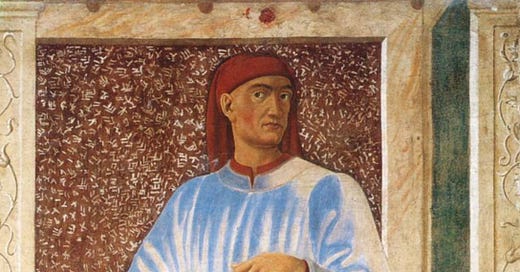



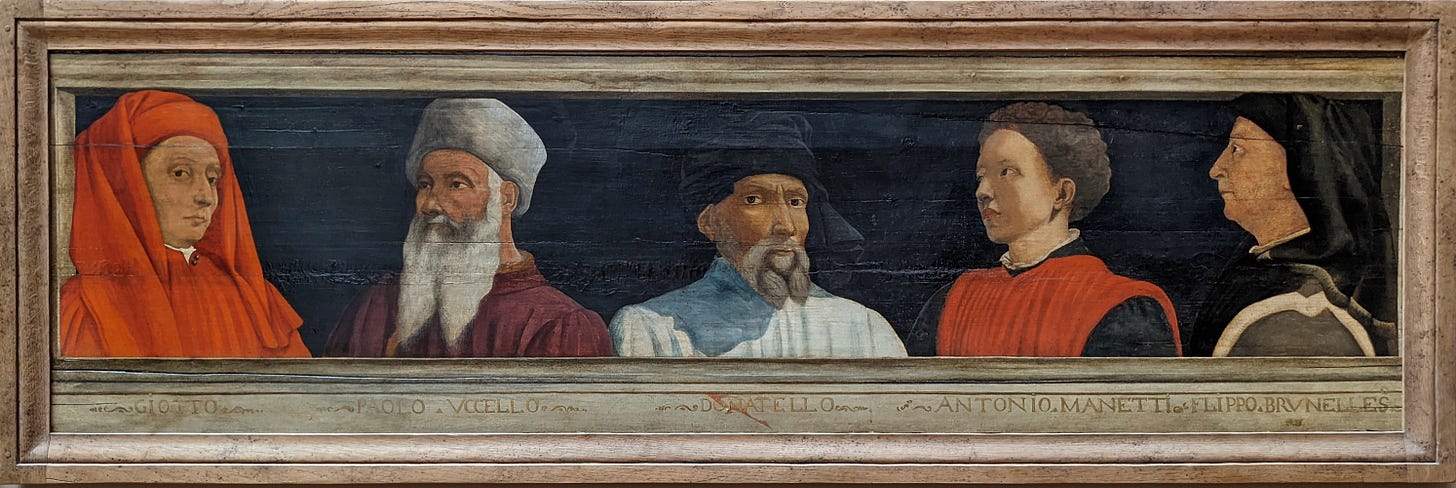
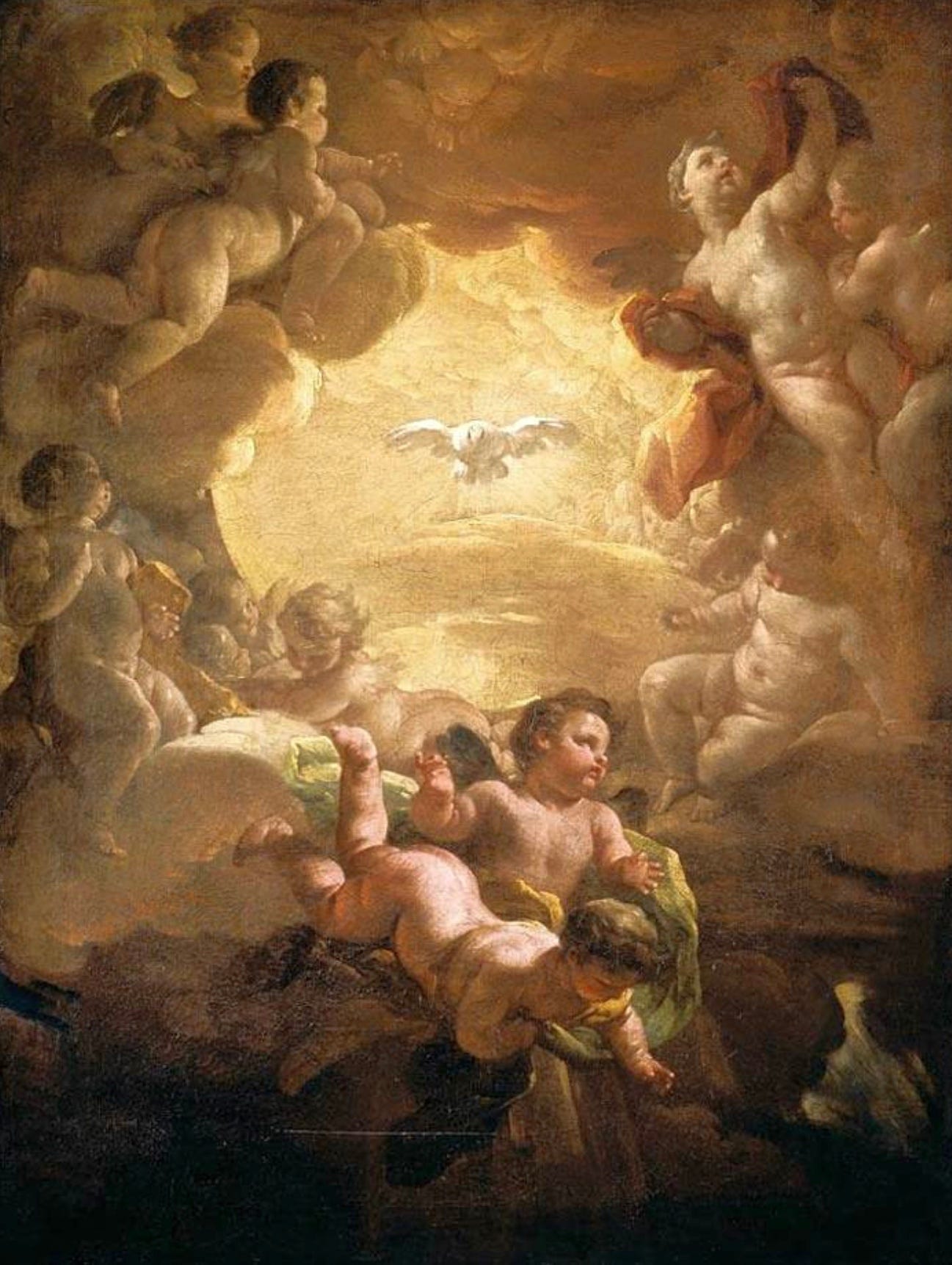
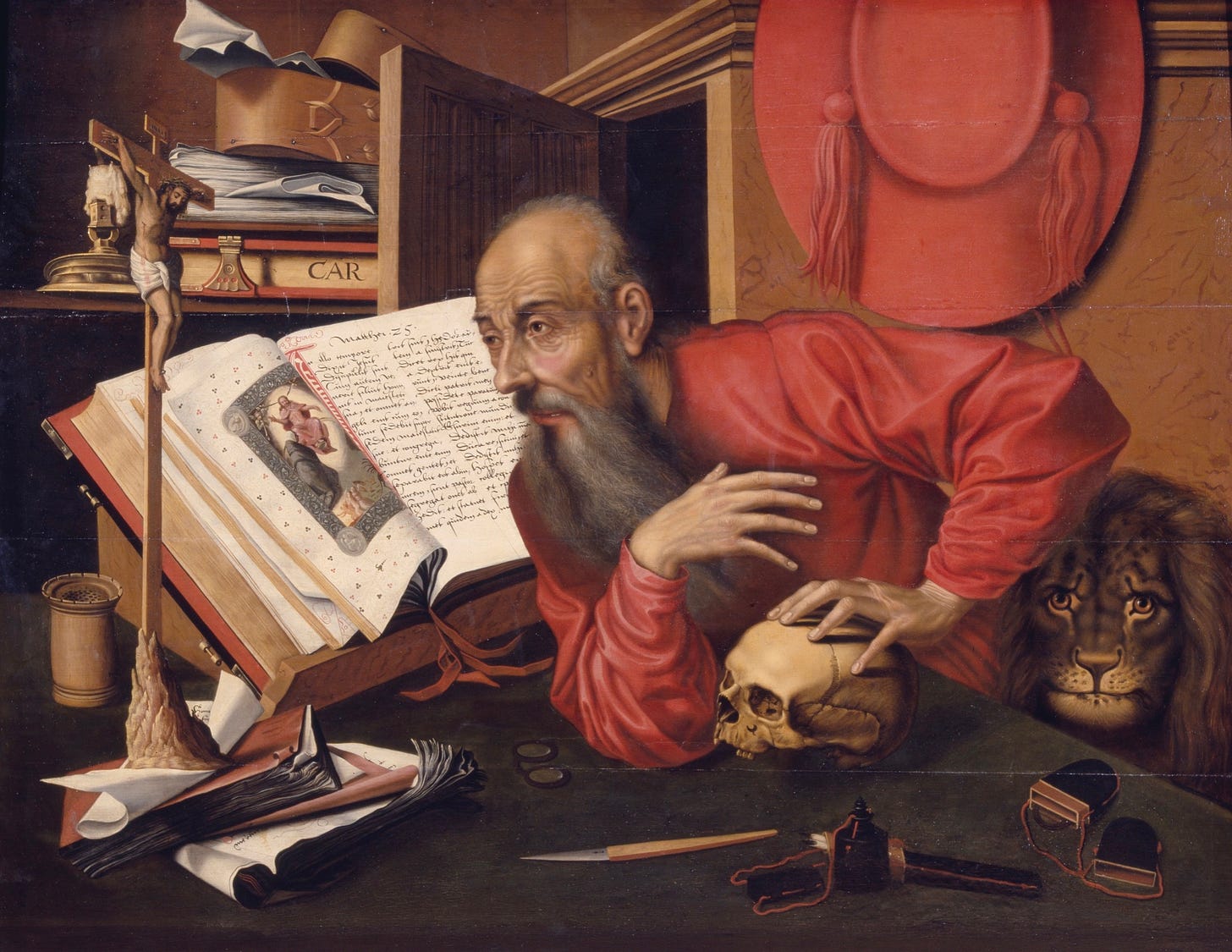
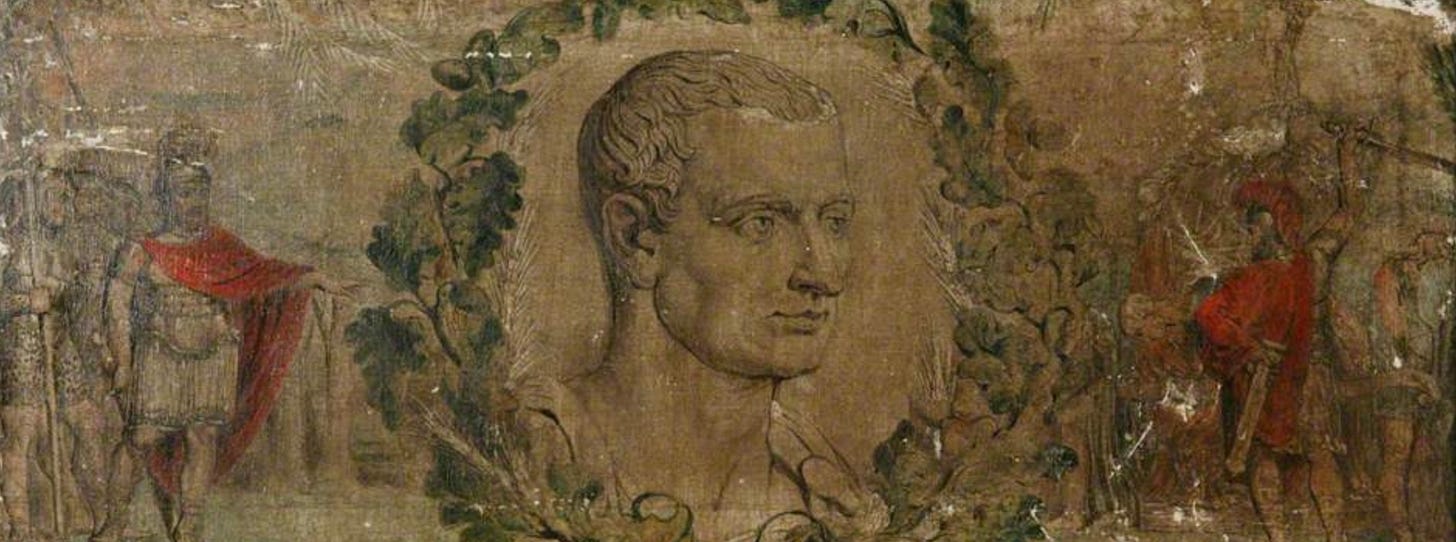
Quite wonderful on both Poetry and the Bible.
I am of two minds on this topic, which I consider almost every day. I have always used, as my guiding principle, utmost clarity of meaning while also trying to convey the magical, mystical quality that caused me to attempt a poem.
I have always found it to be a less interesting discussion when the topic bends toward “what is this poem about, what is the author actually trying to say?” I prefer the inquiry to be about a subject that is well established but still unknown, like love or virtually any topic: sunshine, quiet, trees, moonlight, the sound of wind, the vast stupidity, cupidity or grace of man.
Don’t make the nut so hard to crack that the pleasure devolves around a successful safe cracking but rather, show them the door, hand them a key of joint knowledge and let as many as possible enjoy.
Do 1 in 1,000 actually read poetry? Or is it 1 in 10,000? The world about us is absurdly replete with mysteries and wonders. Why couch their presentation in abstruse, convoluted, obscure language that is packed with archaic references so opaque that only a handful of people can or will attempt to read?
I guess you can see where I sit in this debate. The bottom line is that I do not want to make ANY reader guess whether the poem is about a statue or is it about a painting, or a song. Let’s instead spend our time discussing that statue’s impossible beauty.